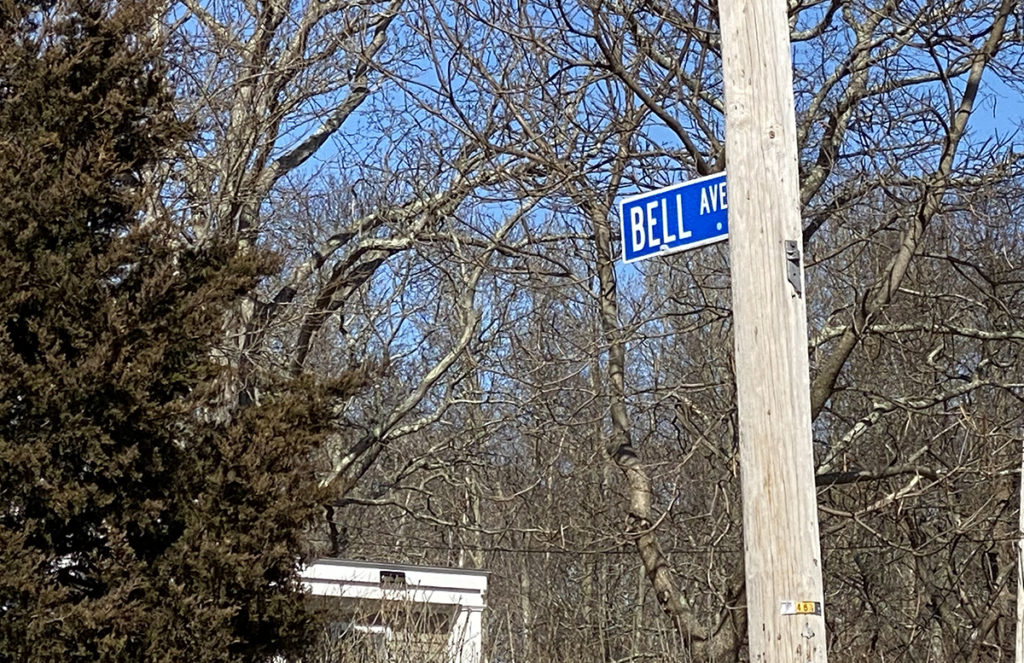Riverhead Town designates sixteen acres as Bell Town Heritage Area

In the 1930s, four brothers, the sons of a self-taught Black farmer and the grandsons of slaves hailing from Powhatan County in Virginia, made the move to Aquebogue.
They joined millions of African Americans migrating from the South to the North in search of better lives.
They were part of the “Great Migration,” a movement of 6 million African Americans out of the rural southern United States to the Northeast, Midwest and West between 1916 and 1970.
The four Bell brothers, — Mansfield, Condry, Ezekiel and Melkiah — worked a variety of jobs in Riverhead and bought 16 acres on the north side of Hubbard Avenue, which were divided into 32 residential lots that they sold to family and friends who also moved north from Virginia. The lots include what is now Bell Avenue, Hobson Drive and Zion Street.
On Tuesday, the Riverhead Town Board designated those 16 acres as the Bell Town Heritage Area, the first such designation in the town.
“A heritage area is different from a historic district,” said Richard Wines, chair of the town’s Landmarks Preservation Committee.
“An historic district is designed to protect architecturally important buildings and protect neighborhoods and architectural heritage,” he said.
“Whereas what we’re talking about here is a cultural heritage area, where the town will recognize the importance of the area, but it won’t pose any restrictions on any of the property owners.”
Mr. Wines said the effort was advanced by a descendant of the Bells, Marylin Banks-Winter of Riverhead. Her mother, the Rev. Mary Cooper, is the daughter of Mansfield Bell.
“I thought it was time to tell our story,” Ms. Banks-Winter said in an interview. “Mom is getting up in age, so I just want to make sure that I was able to sit down with her and talk about our family history.”
“I think it’s long overdue,” said the Rev. Cooper, who is the pastor of House of Praise Christian Revival Center in Riverhead. “It’s important to know the past. I’m grateful that my family is being honored. We have been here a long time and contributed a lot to the community.”

The Rev. Cooper’s parents were part of a group that the built First Baptist Church of Riverhead, although it was originally on Raynor Avenue, where the Church of the Harvest is now. They were part of the group that built the current First Baptist Church on Northville Turnpike, as well, Ms. Banks-Winter said.
The Bells were also instrumental in building the Friendship Baptist Church in Flanders, at the intersection of Bell Avenue and Anchor Street.
“They were basically pioneers and they were here to help,” Ms. Banks-Winter said.
Bell Town was self-contained and self-sufficient. “For instance, one of them owned a garbage truck, one of the had a cesspool company. Another had a farm and my grandfather worked as an accountant,” Ms. Banks-Winters said. “Each one of them had a particular skill so that they were able to serve the people in the area.”
“It’s an interesting story because their grandfather was a slave, and the census from Virginia says he was illiterate, and yet the same sentence indicated that none of his children were going to school,” Mr. Wines said. “I assumed they were illiterate but that turned out to be totally wrong. They taught themselves and were avid readers. Basically, they were self-educated.”
Ms. Banks-Winter said she’s been researching her family for about four years, and she’s been working with the Landmarks Preservation Committee for about two.
“It’s been a wonderful journey,” she said.
The Town Board plans to put a sign up by Bell Avenue designating Bell Town Heritage Avenue.
“There’s really some great history that needs to be highlighted,” Councilman Frank Beyrodt said during a discussion about the designation at last Thursday’s Town Board work session.
“I was fascinated by the history but I’m not surprised, because we have such a rich African American community here,” Mr. Beyrodt said.









